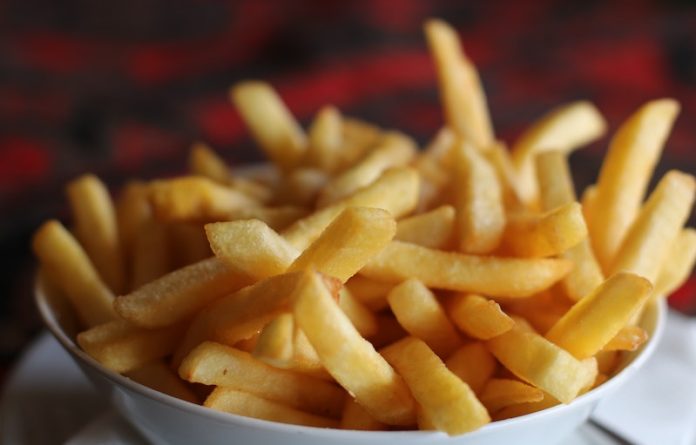
The link between diet and mental health has been a topic of interest for researchers for years.
Recently, a team of food scientists at Zhejiang University in China conducted a study to investigate the correlation between fried food consumption and the risk of anxiety and depression.
The results of the study, which analyzed patient data for 140,728 people, suggested that frequent fried food consumption is strongly associated with a higher risk of anxiety and depression.
In particular, the study found that fried potato consumption was strongly associated with a 12% higher risk of anxiety and a 7% higher risk of depression.
The associations were more pronounced among male and younger consumers.
The researchers suspected that acrylamide, a food processing contaminant that appears when food is fried, might be responsible for these findings.
Acrylamide is a neurotoxin that has been linked to several health problems, including cancer, and is a cause for concern in fried food consumption.
To explore this further, the researchers conducted experiments on zebrafish to see the effects of chronic exposure to acrylamide.
They found that long-term exposure to acrylamide induced anxiety- and depressive-like behaviors in the fish, as evidenced by their reduced eagerness to explore new territory and reduced sociability.
Moreover, treatment with acrylamide significantly down-regulated the gene expression of tjp2a, which plays a role in the permeability of the blood-brain barrier.
Further experiments showed that acrylamide dysregulates sphingolipid and phospholipid metabolism, which play important roles in the development of anxiety and depression symptoms.
Acrylamide also promotes lipid peroxidation and oxidative stress, which participate in cerebral neuroinflammation.
These findings suggest that chronic exposure to acrylamide induces cerebral lipid metabolism disturbance and neuroinflammation, which may be responsible for the anxiety- and depressive-like behaviors observed in the zebrafish.
Overall, this study provides strong evidence that reducing fried food consumption may be beneficial for mental health.
It highlights the significance of avoiding or limiting fried foods that are high in acrylamide, such as fried potatoes and other fried snacks.
While more research is needed to definitively prove the link between fried food consumption and mental health issues in humans, these findings suggest that avoiding or limiting fried foods may be a good strategy for maintaining good mental health.
How to prevent anxiety and depression
Anxiety and depression can have a variety of causes, so there is no one-size-fits-all approach to preventing these conditions. However, there are some general strategies that can help reduce the risk of developing anxiety and depression:
Maintain a healthy lifestyle: Eating a balanced diet, getting enough exercise, and getting adequate sleep are important for both physical and mental health.
Regular exercise has been shown to be particularly effective in reducing symptoms of anxiety and depression.
Practice stress reduction techniques: Stress is a common trigger for anxiety and depression.
Learning techniques such as mindfulness meditation, deep breathing, or yoga can help you manage stress and reduce your risk of developing these conditions.
Build social connections: Social support is important for mental health. Cultivate relationships with friends and family, and consider joining clubs or groups that interest you.
Seek professional help: If you are experiencing symptoms of anxiety or depression, seek help from a mental health professional.
Treatment can help you manage your symptoms and reduce your risk of developing more severe mental health problems.
Limit substance use: Substance use, including alcohol and drugs, can increase the risk of developing anxiety and depression. Limiting or avoiding substance use can help reduce this risk.
Remember, everyone’s mental health journey is unique. If you’re concerned about your mental health, don’t hesitate to reach out for help.
The study was conducted by Anli Wang et al and published in PNAS.
Copyright © 2023 Scientific Diet. All rights reserved.





